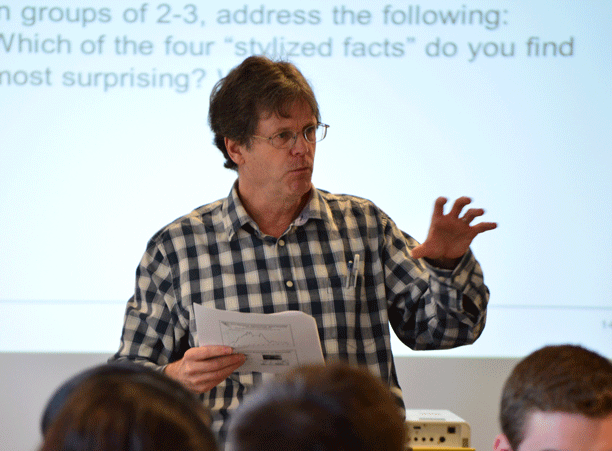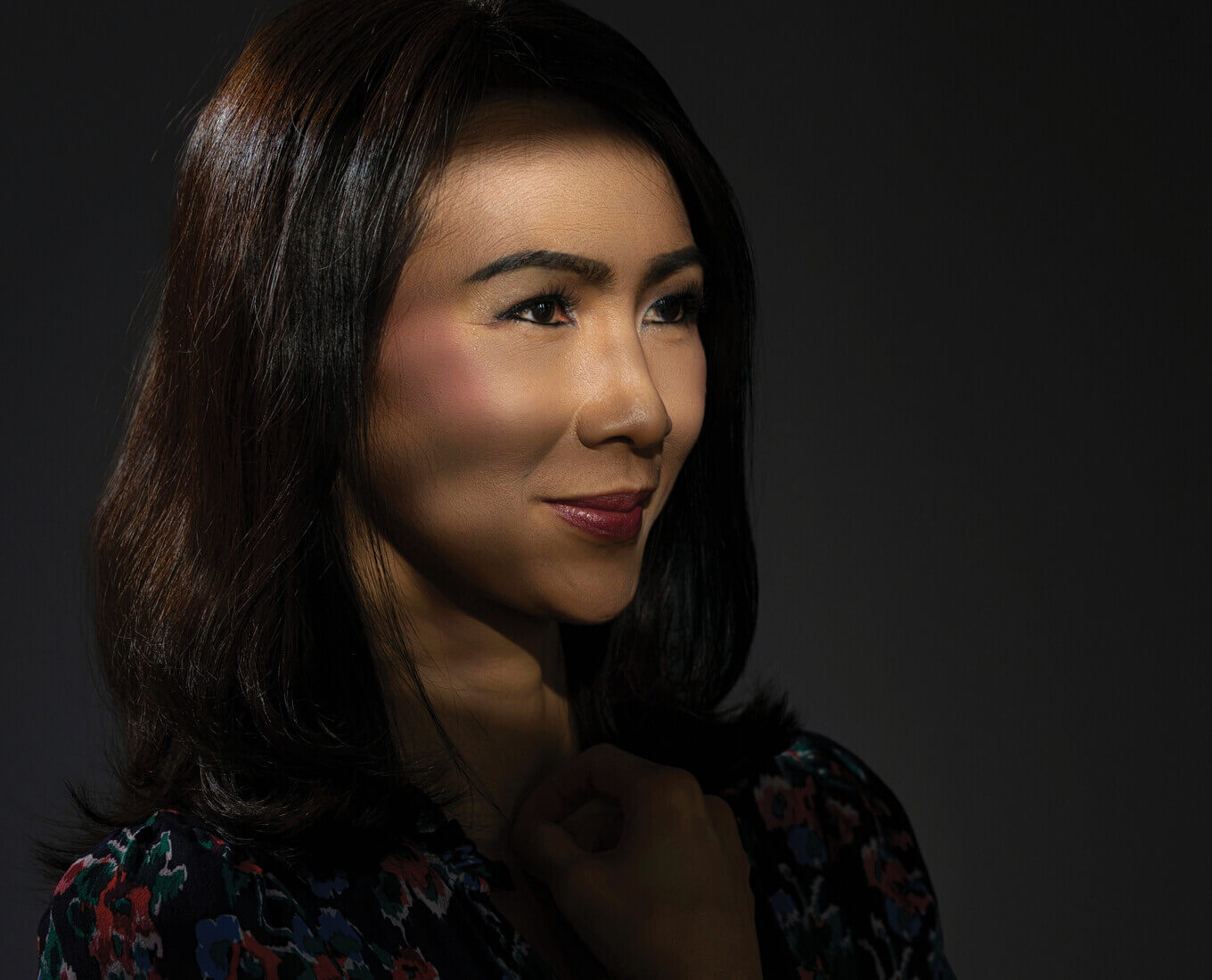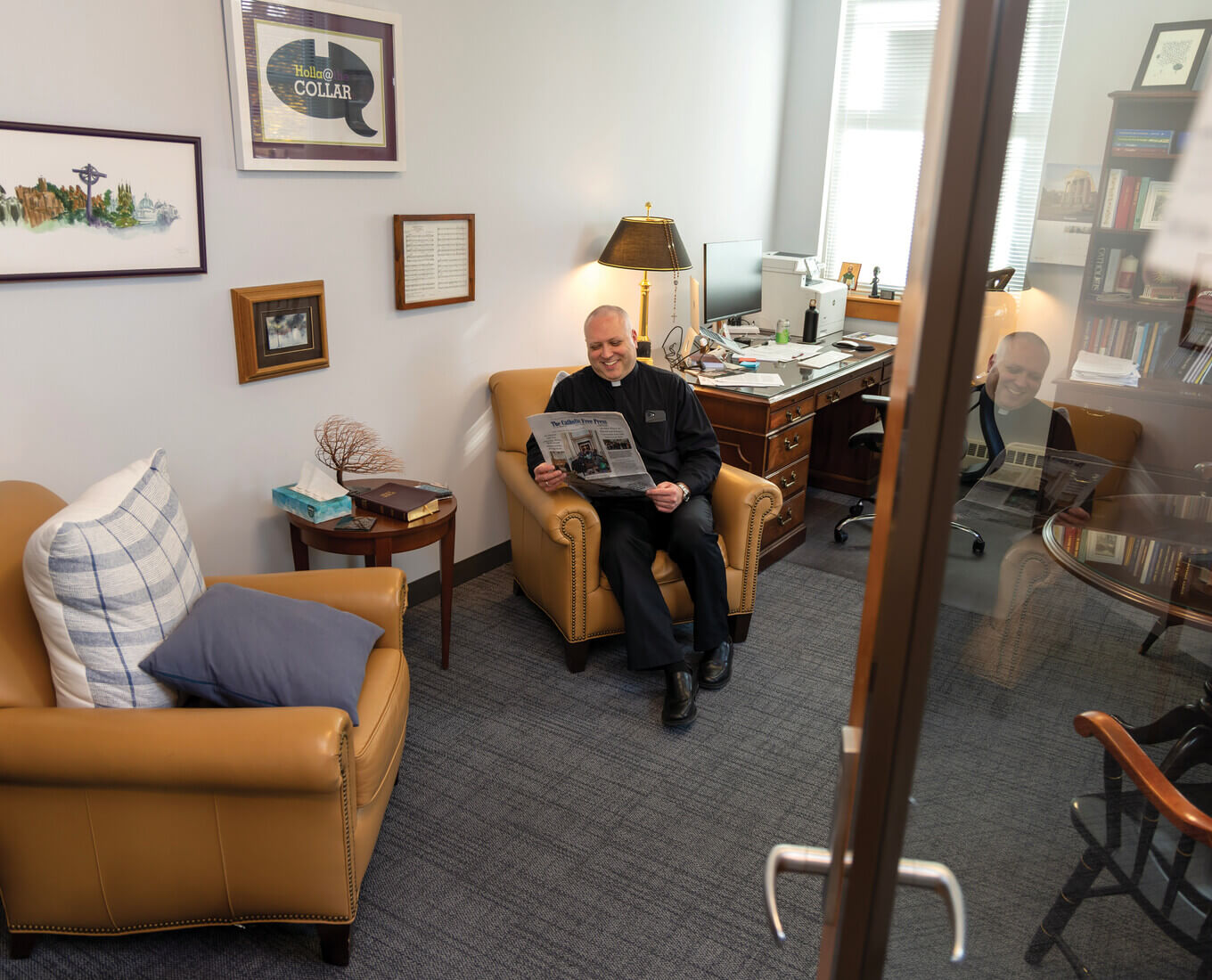
This article originally ran in the November issue of Connections, an online publication of the Associations of Jesuit Colleges and Universities.
Economics professor Charles Anderton is in his office at the College of the Holy Cross talking to a visitor, and pulls out a textbook on genocide. It's comprehensive; roughly the size of a pre-internet phone book. He runs through the chapters.
There's one on psychology. There's one on sociology. Political science. Anthropology. History runs throughout.
Economics is nowhere to be found.
"I don't think it’s because they forgot," says Anderton, the W. Arthur Garrity, Sr., Professor in Human Nature, Ethics and Society. "It's because the economists hadn't really stepped up the way practitioners from these other disciplines had."
Ten years ago, Anderton attended a conference on genocide and was startled by what he heard. The incomprehensible numbers: 100 million killed over the past century; nearly 1 million killed in Rwanda in just 100 days — eclipsing the total killed over the past 50 years in terrorist attacks around the world. And on and on. But perhaps the biggest personal takeaway was what Anderton didn't see. He realized that, while genocide had been a topic of serious research and scholarship for more than 50 years in many disciplines, he and his fellow economists had contributed little to the discussion on how to prevent these mass atrocities.
"It hit me very hard that this field had done virtually nothing on economic aspects of genocides," says Anderton. There was a gap that needed to be filled.
So Anderton and a colleague, Jurgen Brauer, an economist affiliated with Chulalongkorn University in Bangkok, Thailand, co-edited “Economic Aspects of Genocides, Other Mass Atrocities, and Their Prevention” in 2016. Published by Oxford University Press, the volume includes 28 chapters, four of which are co-authored by Anderton himself. They reached out to experts from around the world and from multiple disciplines, and filled the collection with the work of 41 scholars, including a Nobel Prize winner. The work has already been adopted by more than 200 libraries and has been positively reviewed in a number of venues; Oxford University Press has invited the co-editors to write a trade book on the same topic.
'Disturbing Rationality'
Economics may not immediately seem to apply to the study of genocide. But economics is about behavior and how humans behave when they act rationally, in their own self-interest. A shopper at a grocery store will buy the loaf of bread that’s on sale over one that’s full price, for example. Anderton’s research has focused on how the perpetrators of genocide act similarly, or in his words, “with disturbing rationality.” Governments and other groups that commit mass atrocities make horrific but calculated choices about how to kill and terrorize those they seek to eliminate.
“The destruction of people can be calculated, efficient,” Anderton says. “It can be shockingly effective."
Understanding those choices, and how external pressure can affect them, is at the heart of Anderton’s work. Early intervention is key, and understanding the data behind mass killings could help the international community identify potential genocides before they start.
The research has also investigated how groups that commit genocide react to external pressure, like economic sanctions or other diplomatic efforts. Anderton has found that those kinds of efforts can have unintended consequences. For example, when the Mexican government tried to counteract drug cartels' efforts to attack key officials in the federal government, the cartels focused their efforts on attacking local officials — town and village chiefs of police, judges and officers.
“You really have to think holistically; you have to understand that organizations, whether they are drug organizations or governments...have many prongs they can choose to do what they’re trying to do," Anderton says.
Student-Supported Research
Anderton credits his students with furthering his research. At most larger institutions, it is not always possible for undergraduates to work directly with faculty members. At Holy Cross, students and faculty collaborate to devise noteworthy research projects and explore challenging topics. Along the way, they learn to translate intellectual curiosity and passion into concrete research questions and hone important skills by working with state-of-the-art lab instruments and cutting-edge research methods.
Anderton has taken on four Honors students who have contributed to his research. He co-authored a peer-reviewed article with one of his students, Edward V. Ryan ’15, examining how "low-level" attacks against civilians can be a predictor of genocidal attacks. Most genocide data sets begin tracking only after five civilian deaths. But non-lethal attacks, like looting, rape, and forced kidnapping, can normalize attacks on the victimized group. Anderson notes that it is important for the international community to recognize these trends while there’s still a chance to intervene and save lives.
"Once the behavior spreads... it's like an epidemic," he says. "The disease has spread and it's out of control."
Another of Anderton's students, Colleen Melaugh '12, went on to publish her own article on the topic, illuminating the under-researched "lost genocide of El Salvador," which she first learned about while on a trip with a Jesuit organization during her undergraduate days at Holy Cross.
"Having the interaction with the kind of students that we have here has been really beneficial to my research," Anderton says.
In May, Anderton received Holy Cross' Mary Louise Marfuggi Faculty Award for Outstanding Scholarship. This annual award was established to honor a member of the faculty for outstanding achievement in the creation of original work in the arts and sciences, encouraging interesting and important research.
When Anderton first joined the Holy Cross faculty, he got a few quizzical looks from colleagues for his focus on the economics of war and peace. Who was this guy, and was he really doing economics?
"(Economists) usually think of financial markets, and grocery stores, and jobs," says Anderton. "But they were immediately supportive of the whole thing. I feel like I've been blessed by great support from the College, great students, and great colleagues. You can't ask for much more than that."

